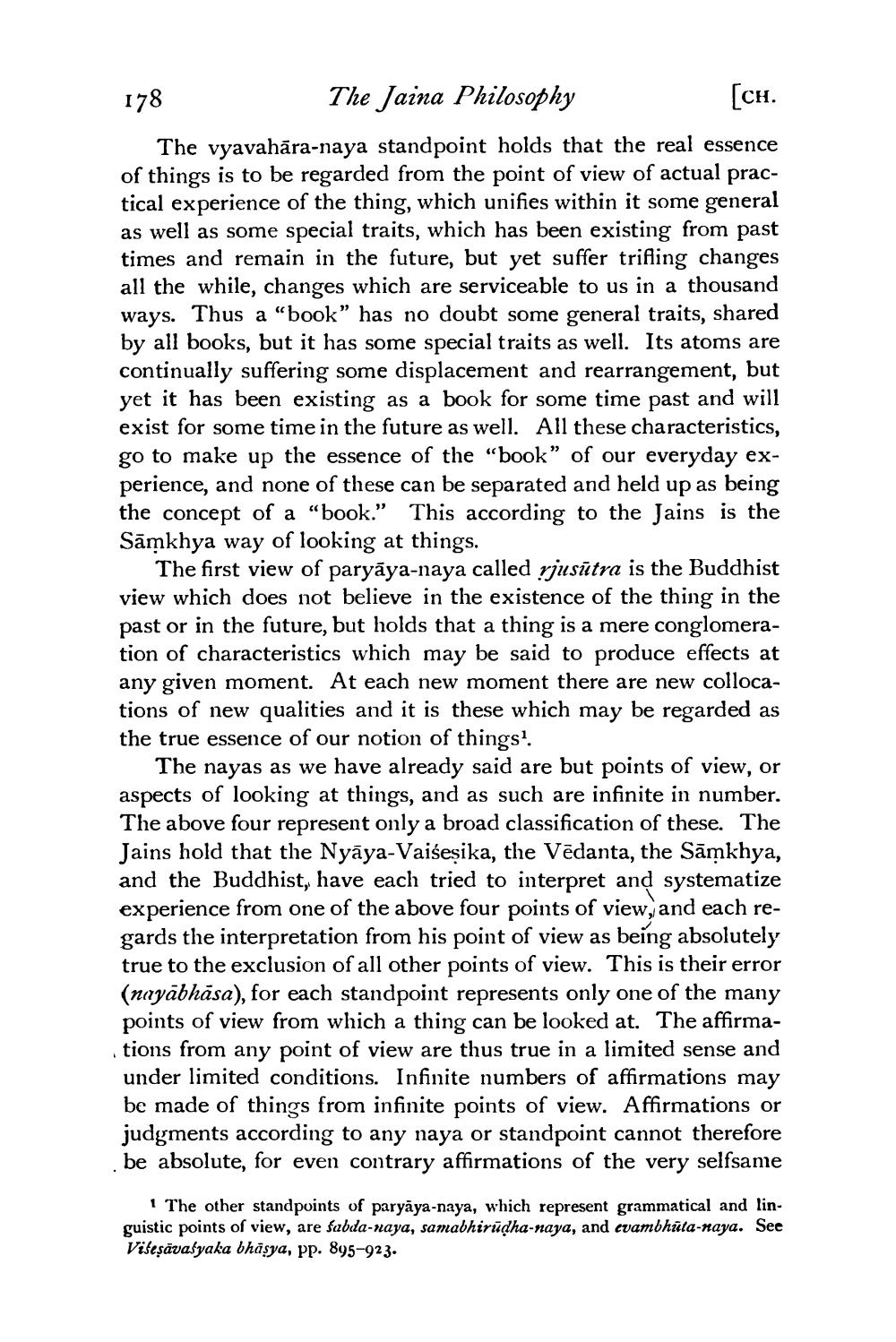________________
178
The Jaina Philosophy
[CH.
The vyavahāra-naya standpoint holds that the real essence of things is to be regarded from the point of view of actual practical experience of the thing, which unifies within it some general as well as some special traits, which has been existing from past times and remain in the future, but yet suffer trifling changes all the while, changes which are serviceable to us in a thousand ways. Thus a "book” has no doubt some general traits, shared by all books, but it has some special traits as well. Its atoms are continually suffering some displacement and rearrangement, but yet it has been existing as a book for some time past and will exist for some time in the future as well. All these characteristics, go to make up the essence of the “book” of our everyday experience, and none of these can be separated and held up as being the concept of a "book." This according to the Jains is the Sāmkhya way of looking at things.
The first view of paryāya-naya called rjusūtra is the Buddhist view which does not believe in the existence of the thing in the past or in the future, but holds that a thing is a mere conglomeration of characteristics which may be said to produce effects at any given moment. At each new moment there are new collocations of new qualities and it is these which may be regarded as the true essence of our notion of things?.
The nayas as we have already said are but points of view, or aspects of looking at things, and as such are infinite in number. The above four represent only a broad classification of these. The Jains hold that the Nyāya-Vaisesika, the Vēdanta, the Sāmkhya, and the Buddhist, have each tried to interpret and systematize experience from one of the above four points of view, and each regards the interpretation from his point of view as being absolutely true to the exclusion of all other points of view. This is their error (nayābhāsa), for each standpoint represents only one of the many points of view from which a thing can be looked at. The affirmations from any point of view are thus true in a limited sense and under limited conditions. Infinite numbers of affirmations may be made of things from infinite points of view. Affirmations or judgments according to any naya or standpoint cannot therefore be absolute, for even contrary affirmations of the very selfsame
1 The other standpoints of paryāya-naya, which represent grammatical and linguistic points of view, are fabda-naya, samabhirūdha-naya, and evambhūta-naya. See Višeşāvašyaka bhäsya, pp. 895-923.




